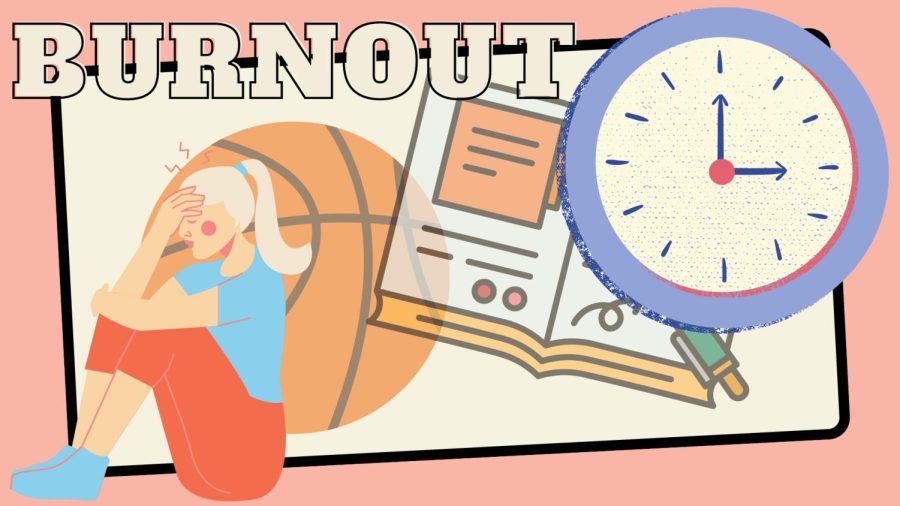Student-athletes work on time management and sport-life balance
Students struggle to balance sports and schoolwork as the year progresses.
Second semester is coming to a close, and schoolwork is still piling up on students. This is especially true for student-athletes, whose after-school commitments lend them less time for schoolwork.
“Being in a competitive club and team means constantly needing to be present for my games. This causes me to be up late, doing homework, which makes me more tired and unfocused,” said Kayla Rodriguez (‘25).
The average teenager gets roughly seven hours of sleep per night, two hours less than the recommendation for adolescents. Unfortunately, many student-athletes sacrifice sleep in favor of sports and homework.
“If I have a game the next day, but I also have a big project, I have to prioritize one or the other, so I usually just give up on my sleep to make sure I get both of them,” said Riya Sharda (‘25).
Many students are sleep-deprived as a result of getting less sleep than recommended. This deprivation leads to negative mood swings, slower cognitive ability, and poor academic performance.
“The more pressure that gets put on you, the worse your mental health gets and then the school work just keeps building up,” said Anika Kaushik (‘25).
Students may feel pressure from parents to prioritize education over sports, even when their values conflict. This can add to the stress they feel from a busy schedule.
“My parents put education first, and I put sports first so it’s hard to balance that out with their wants and my wants. They get upset when I’m staying up late because I would like to practice, but I also need to get my work done,” said Sharda.
Sports can be a much-needed break for students, as it allows them to exercise while pursuing a passion and releasing stress that has been built up during the day.
“I think that basketball makes my mental health better because it gives me a break from doing school,” said Kaushik.
Time management is crucial for student-athletes; they have to find ways to balance their schedule, whether it means taking less rigorous classes or taking days off to catch up.
“I’m going to get tutoring help and also sign up for ACCESS to have a one-on-one with my teacher. Also, Amador is also providing peer tutoring which interests me,” said Sharda.
At Amador, ACCESS is a study period that gives students time to catch up on school work or receive additional help from teachers.
“I try to work during ACCESS and other classes when I get free time instead of being on my phone and procrastinating so I don’t sleep super late,” said Kaushik.
Your donation will support the student journalists in the AVJournalism program. Your contribution will allow us to purchase equipment and cover our annual website hosting costs.











